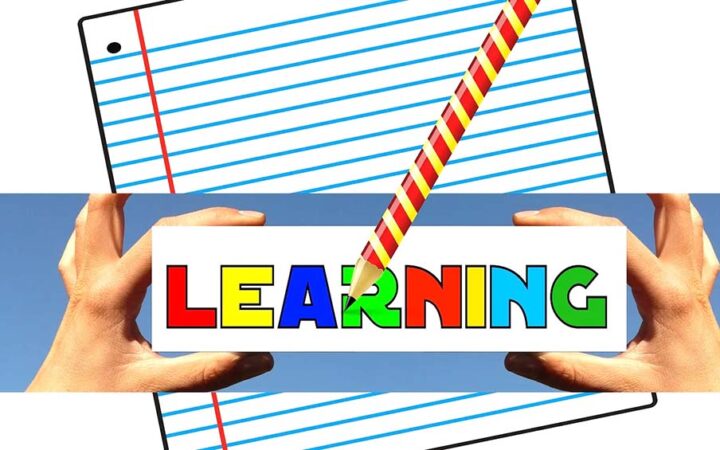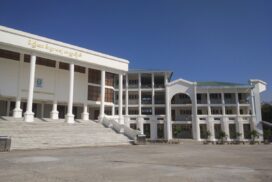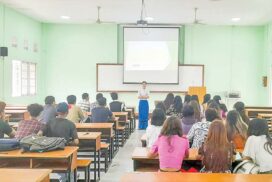To cope with the challenges of the rapidly changing environment in the 21st century, numerous educational reforms and school restructuring movements are being implemented in order that these can pursue education effectiveness and school development. Now, different regions of the world are in the process of globalization with regard to technological, economic, social, political, cultural, and learning spheres, networked through the Internet, many types of IT, communications, and transportation. People are also becoming more and more mutually dependent through international collaboration, exchange, and interflow. In such a context, there is an emerging paradigm shift in education from tradition to triplization. Using the concepts of triplization, students, teachers, and schools can be termed individualized, localized, and globalized.
In the way of traditional thinking, students and their learning are part of reproducing and perpetuating the existing knowledge and manpower structure to sustain society’s improvement. Reproduced learning is often perceived as hard work for the purpose of achieving external rewards and avoiding punishment. In site-bounded learning, all learning activities are school-bounded and teacher-based. Learning takes place only in school within the given time frame and graduation tends to be the end of a student’s learning, as a matter of fact. On the other hand, individualized learning assumes that students are at the centre of education and their learning in different styles should be facilitated in such a way that all types of transfer, adaptation, and development of respective values, knowledge, technology, and norms during the learning process can meet their needs and personal characteristics. These students are self-motivated and self-learning while this learning is enjoyable and self-rewarded so as to keep up life-long learning. Localized and globalized learning must be made possible in the way that local and global resources, support, and networks can be utilized to maximize the opportunities for their development in the space of a learning process both inside and outside their schools. Learning groups and networks will turn into a major driving force to maintain the learning climate and multiply the learning effects through sharing and mutual motivation.
By tradition in reproduced teaching, teachers are the centre of education and their main task is to ensure that standardized knowledge is taught to students. Often their teaching is a disciplinary, delivery, training, and socializing process. And in school-bounded teaching, schools are the major venue for teaching and teachers are the main source of learning. They teach the standard curriculum with textbooks and related materials assigned by their schools and the education authority. However, in individualized teaching, teachers and their teaching are made easy to take full advantage of their potential to maximize students’ learning. The focus of this teaching is to arouse students’ curiosity and motivation to think, act, and learn, sharing with them the joy of a learning process and its outcomes. Localized and globalized learning emphasizes that by participating in local and international development programs, teachers can achieve a global or regional outlook and engage in experiences beyond schools. Then, they are likely to become world-class and networked teachers through localization and globalization.
Traditionally, the school looks almost like an isolated island bounding all activities of schooling, teaching, and learning in a very narrow way. There is no clear need to encompass strong community linkage and parental involvement, for a school is the chief source of knowledge and qualifications. Not only are the opportunities for learning quite limited but school life and its activities are alienated from the fast-changing real outside world or local communities. On the other side, schools are believed to be a convenient place to support student’s learning from the point of view of the new schooling paradigm. The point of schooling is to keep both teachers and students carried out in a multiple intelligence way. In order to face the challenges of the new century and track the multiple intelligences, schools must be a continuously learning and developing organization, including continual discovery, experiencing, actualization, reflection, and development on an institutional level. Locally and globally networked schooling can provide a wide spectrum of learning experiences and maximize the opportunities for teachers and students to profit from various settings, cultures, and exposure.
Thus, in every school, all students will have to grow as triplized multiple intelligence ones who really can then enjoy lifelong self-learning actualization and so will teachers or schools. The teachers will need to share the enjoyment of learning and teaching with their students, taking up continuous learning and professional development. They also ought to dedicate themselves to making their contribution to triplization in learning, curriculum, and pedagogy as well as creating unlimited opportunities to learn and improve in this century for all of their students under diverse circumstances from every corner of the globe.
Reference:
Educational Theory Course
for the 3rd year of BEd
(Yangon University of Education)














